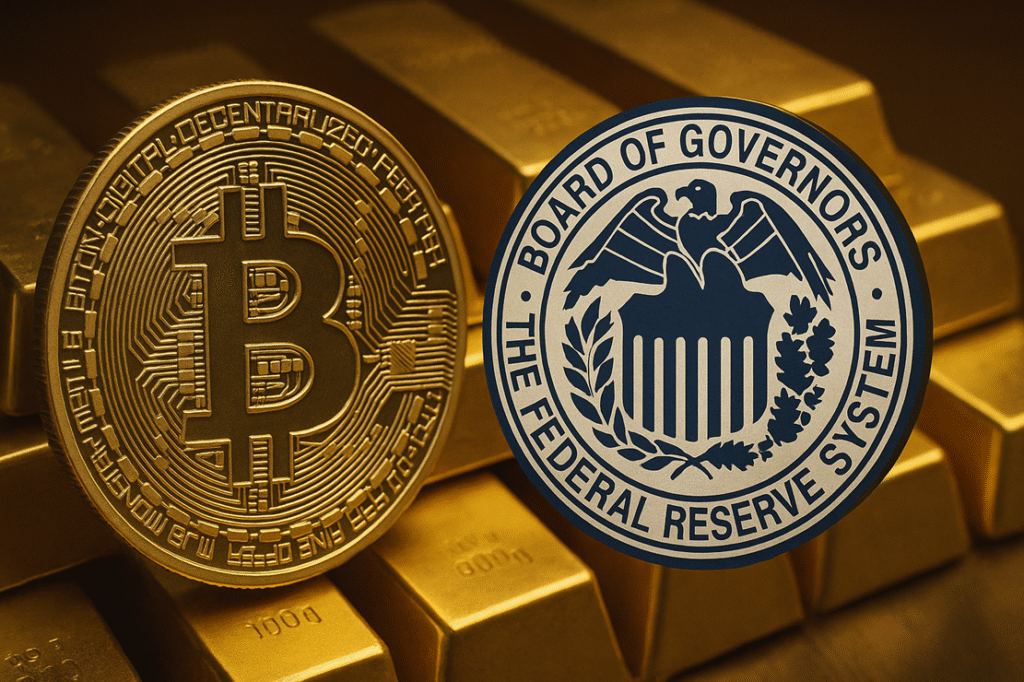As the conversation around digital assets deepens, the fusion of traditional finance with cryptocurrencies is capturing the imagination of policymakers and investors alike. This intriguing intersection is shaping innovative financial strategies, including the concept of a Strategic Bitcoin Reserve funded by revalued US Treasury gold. Such a proposal signifies a progressive shift in fiscal policy, heralding a potential evolution in how nations might manage their financial resources. Here, we delve into the Federal Reserve’s perspective on this novel idea, weighing its implications and exploring its feasibility.
Exploring the Federal Reserve’s Take on a Strategic Bitcoin Reserve
Insights from the Federal Reserve’s Evaluation
In a groundbreaking analysis, the Federal Reserve has provided a detailed examination of proposals to fund a US Strategic Bitcoin Reserve by marking the Treasury’s gold holdings to market value. Captured in the research note “Official Reserve Revaluations: The International Experience,” senior economist Colin Weiss evaluates several historical precedents where governments harnessed unrealized gains from gold and foreign-exchange reserves. His assessment is pivotal in understanding the possible impacts on the US economy.
With public debt levels soaring, Weiss highlights the emerging interest among governments to finance new expenditures without resorting to tax hikes or adding to public debt. One feasible approach involves leveraging the appreciation of gold reserves, an idea recently explored in both the US and Belgium.
Financial Implications of Revaluing Gold
The arithmetic underlying this concept is compelling. By revaluing the US Treasury’s 261.5 million troy ounces of gold from the long-standing statutory price of $42.22 to the present market rate near $3,300, an impressive $850 billion could be unlocked. This amount represents about 3% of the US GDP and is a central figure in Senator Cynthia Lummis’ BITCOIN Act, which suggests creating a federal reserve of up to one million bitcoins over a planned five-year period.
While the Fed’s report abstains from endorsing policy changes, it provides a sobering perspective for those advocating reserve revaluation as a quick fiscal fix. Historical cases like Germany’s 1997 initiative, Lebanon in 2002, and recent instances involving Curaçao and St. Martin show that such financial maneuvers may not resolve deeper structural challenges, as evidenced by Lebanon’s escalating debt despite utilizing gold revaluation proceeds.
The Strategic Bitcoin Reserve and Its Legislative Framework
The Fed’s mention of Bitcoin, albeit in a footnote, marks the first formal acknowledgment of the mechanics of a Bitcoin reserve bill under federal scrutiny. Senator Lummis’ proposal, known as the Boosting Innovation, Technology, and Competitiveness through Optimized Investment Nationwide (BITCOIN) Act, lays the groundwork for establishing a Strategic Bitcoin Reserve, ensuring the federal government’s transparent Bitcoin asset management.
The legislation would permit the Treasury to acquire up to 200,000 Bitcoins annually, with a maximum cap of one million coins, equating to roughly 5% of Bitcoin’s ultimate supply. To preserve this reserve from short-term political interests, a minimum holding period of 20 years is stipulated. Additionally, the Act requires quarterly cryptographic proof-of-reserve attestations and commands the consolidation of seized Bitcoins from agencies like the US Marshals Service into a centralized vault network.
Funding the acquisition depends significantly on the gold revaluation strategy. Specifically, the Act directs Federal Reserve Banks to reissue gold certificates at fair value, channeling up to $6 billion annually through 2029 to support the purchase program.
Expert Opinions and Market Reactions
Bo Hines, executive director of the President’s Council of Advisers on Digital Assets, has echoed the potential of reallocating gold values to facilitate Bitcoin purchases in a manner neutral to the federal budget, following instructions from a directive by President Trump. This creative fiscal strategy aligns with the administration’s commitment to innovative, cost-effective resource management.
As of the latest data, Bitcoin was trading at $114,776, showcasing its volatile yet intriguing investment potential.
Editorial Commitment
Our editorial mission is centered on delivering meticulously researched, accurate, and unbiased content. All articles undergo rigorous review by top industry experts and seasoned editors to ensure the integrity, relevance, and value of the information presented to our readers.
Is Bitcoin considered a secure store of value like gold?
Bitcoin is often dubbed ‘digital gold’ due to its scarcity and increasing adoption. However, its relatively short history and volatility compared to gold, a time-tested store of value, make it a riskier option. Investors should weigh these factors alongside market trends and personal risk tolerance.
How does revaluing gold contribute to national fiscal health?
Revaluing gold can unlock substantial financial resources without imposing new taxes or increasing public debt, providing governments with a financial cushion. However, it is not a panacea for deep-rooted fiscal challenges, which require comprehensive economic reforms.
What are the potential risks of a Strategic Bitcoin Reserve?
The risks include Bitcoin’s price volatility, regulatory uncertainties, and security concerns surrounding digital assets. Before proceeding, a government must carefully consider these factors to ensure the reserve’s stability and strategic value.

